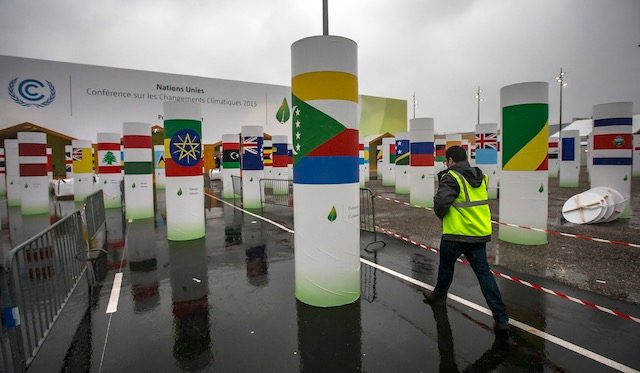SUMMARY
This is AI generated summarization, which may have errors. For context, always refer to the full article.

WASHINGTON DC, USA – Pledges made in the lead-up to next week’s major Paris climate change conference could limit severe warming, but only if countries turn their words into long-term action, a study said Thursday, November 26.
The crunch UN summit will be officially opened by more than 150 heads of state and government on Monday, November 30, making it the biggest gathering of world leaders on climate in history.
Negotiators are tasked with sealing a deal that will cap average global warming at 2ºC (3.6ºF) over pre-Industrial Revolution levels .
In the build-up to Paris, countries announced the contributions that they are willing to make to combat global climate change, based on their own national circumstances.
These Intended Nationally Determined Contributions, or INDCs, extend through 2025 or 2030 and will form the backbone of the universal climate-rescue pact.
“If countries implement their INDCs through 2030 and ramp up efforts beyond 2030, we’ll have a much better chance of avoiding extreme warming and keeping temperature change below two-degrees Celsius,” said Gokul Iyer.
Iyer was the lead scientist of the study, which was published in the journal Science.
“It’s important to know that the INDCs are a stepping stone to what we can do in the future,” added Iyer, of the Joint Global Change Research Institute, a collaboration between the US Department of Energy’s Pacific Northwest National Laboratory and the University of Maryland.
Ken Kimmell, president of the Union of Concerned Scientists, a non-profit group, said the Paris meeting was a mixed bag.
“This is the first time since climate negotiations started two decades ago that virtually all the world’s nations have committed to being part of the solution,” he said.
By comparison, the 1997 Kyoto Protocol included pledges for reductions by just 37 countries and comprising well under half of global emissions.
But he added: “The Paris agreement is not expected to bind countries to meet their pledges, nor provide for a sanction if they do not.
“This is of course disappointing, but there seems to be no way around it.” – Rappler.com
Add a comment
How does this make you feel?
There are no comments yet. Add your comment to start the conversation.